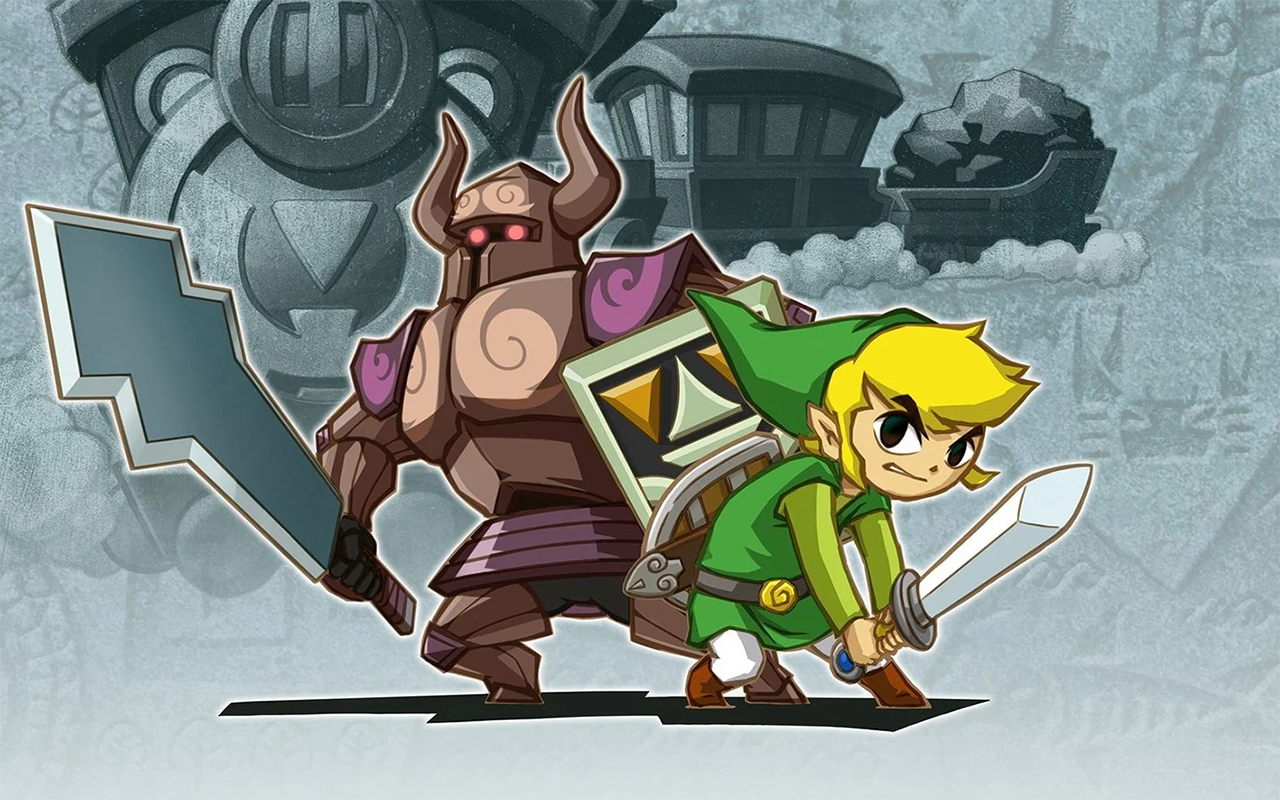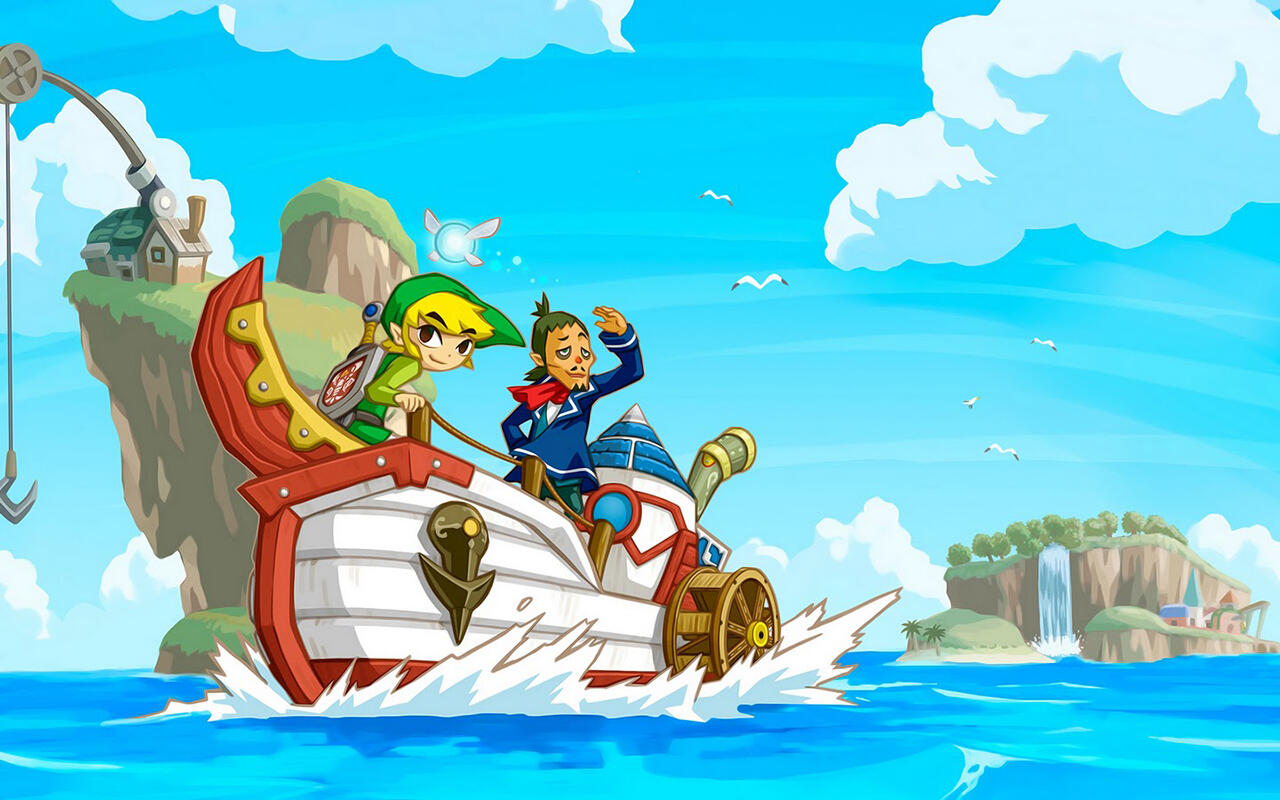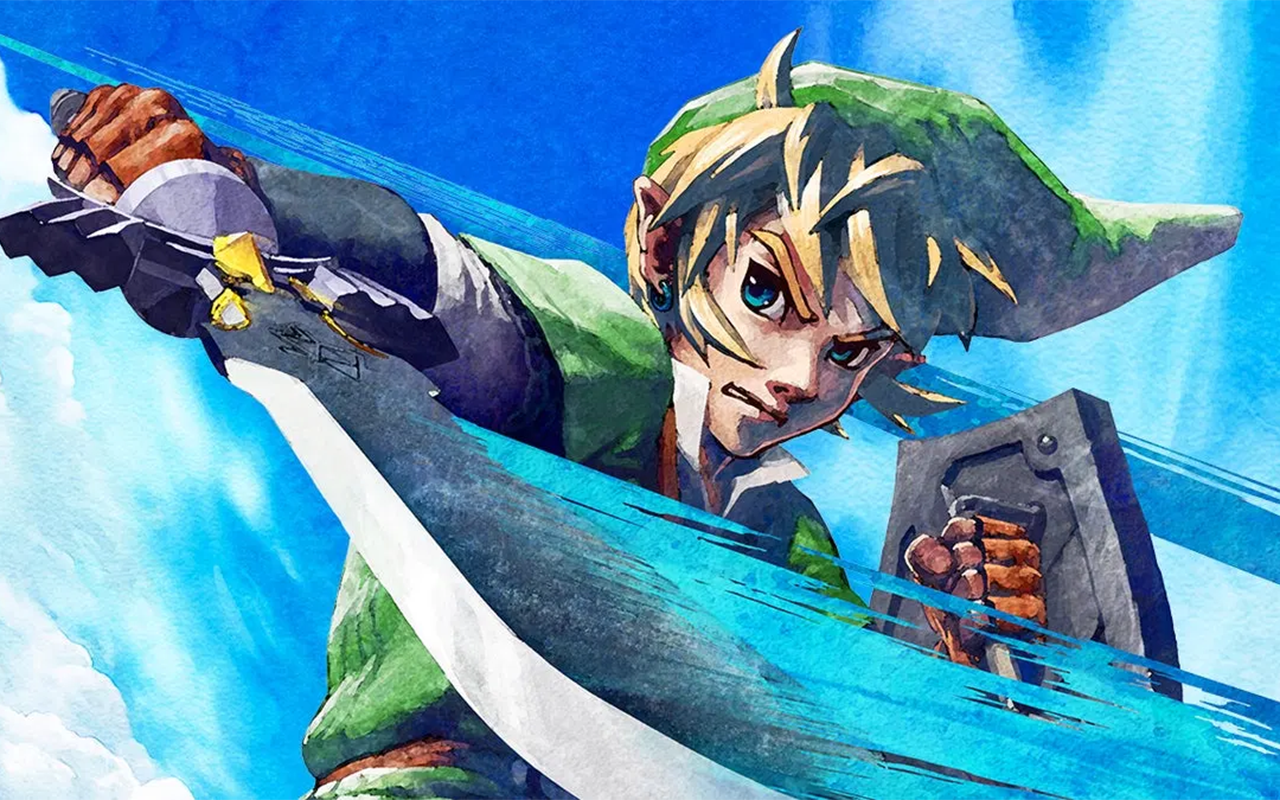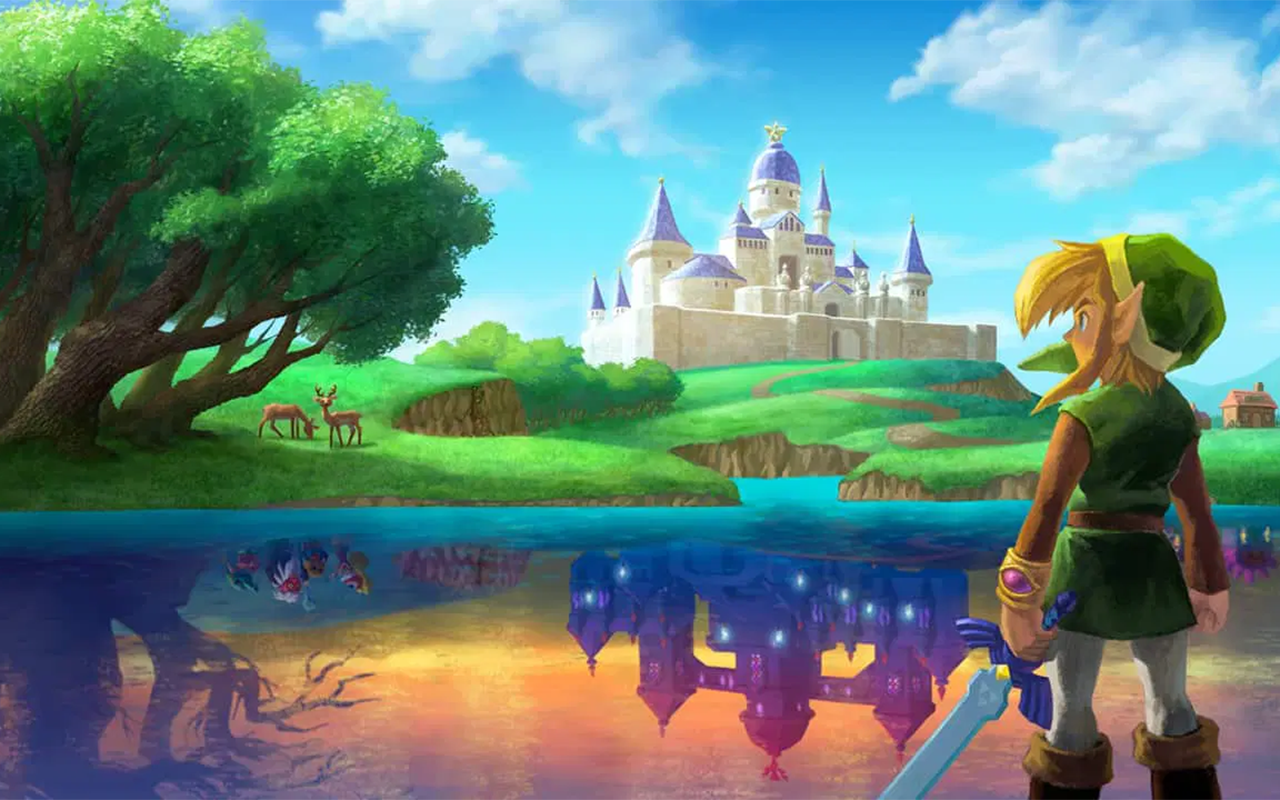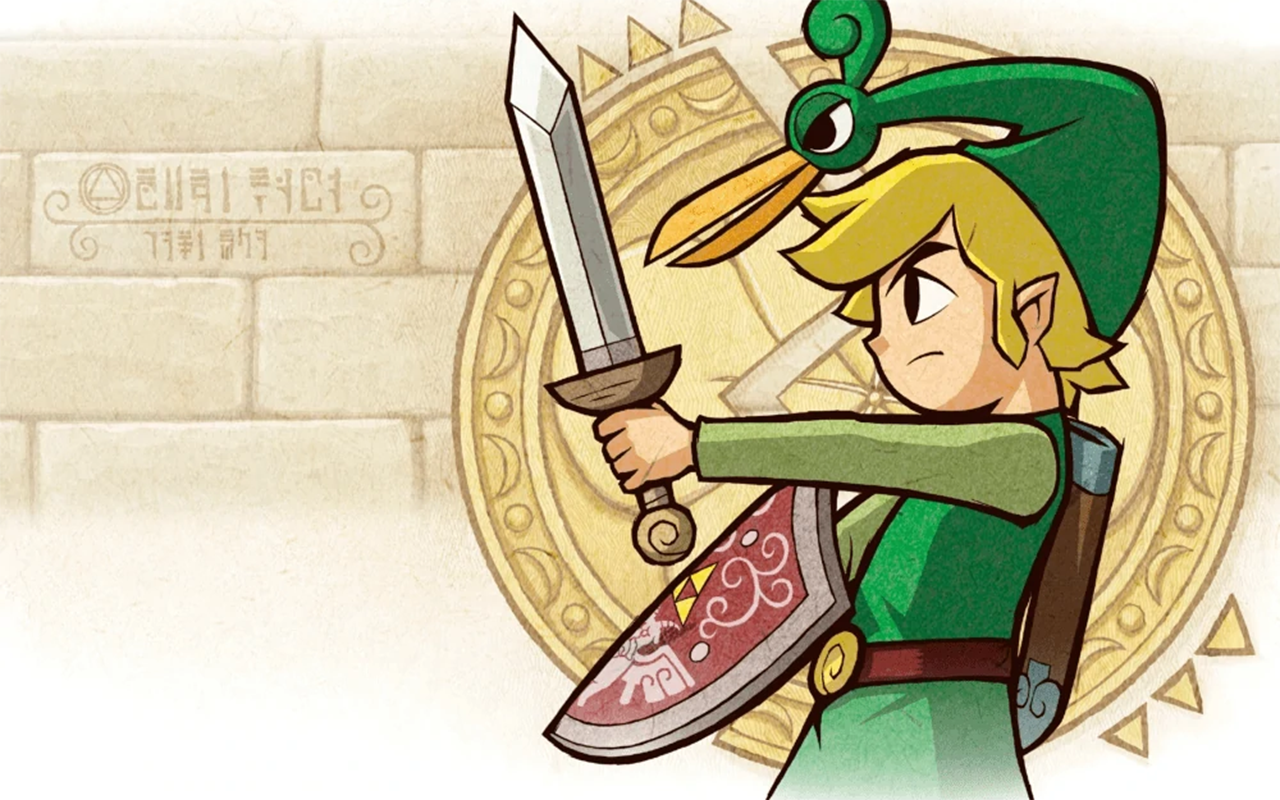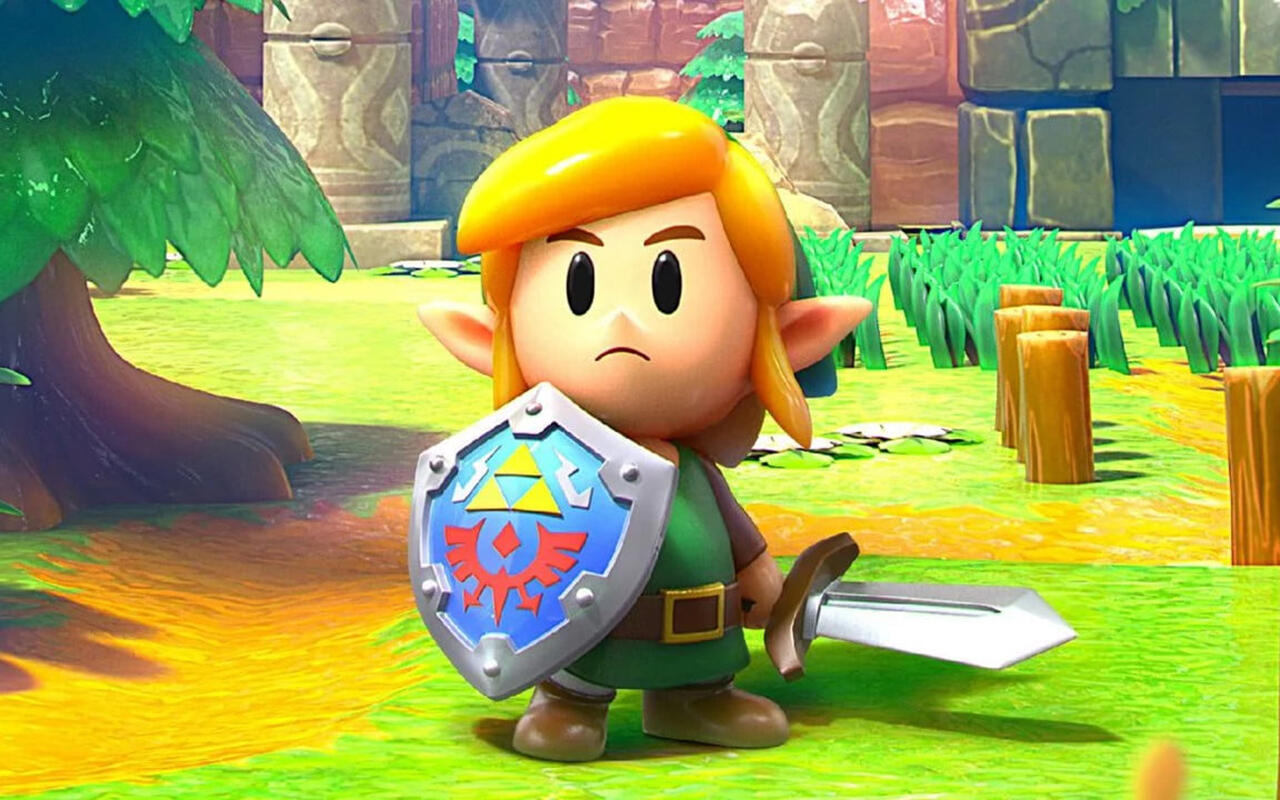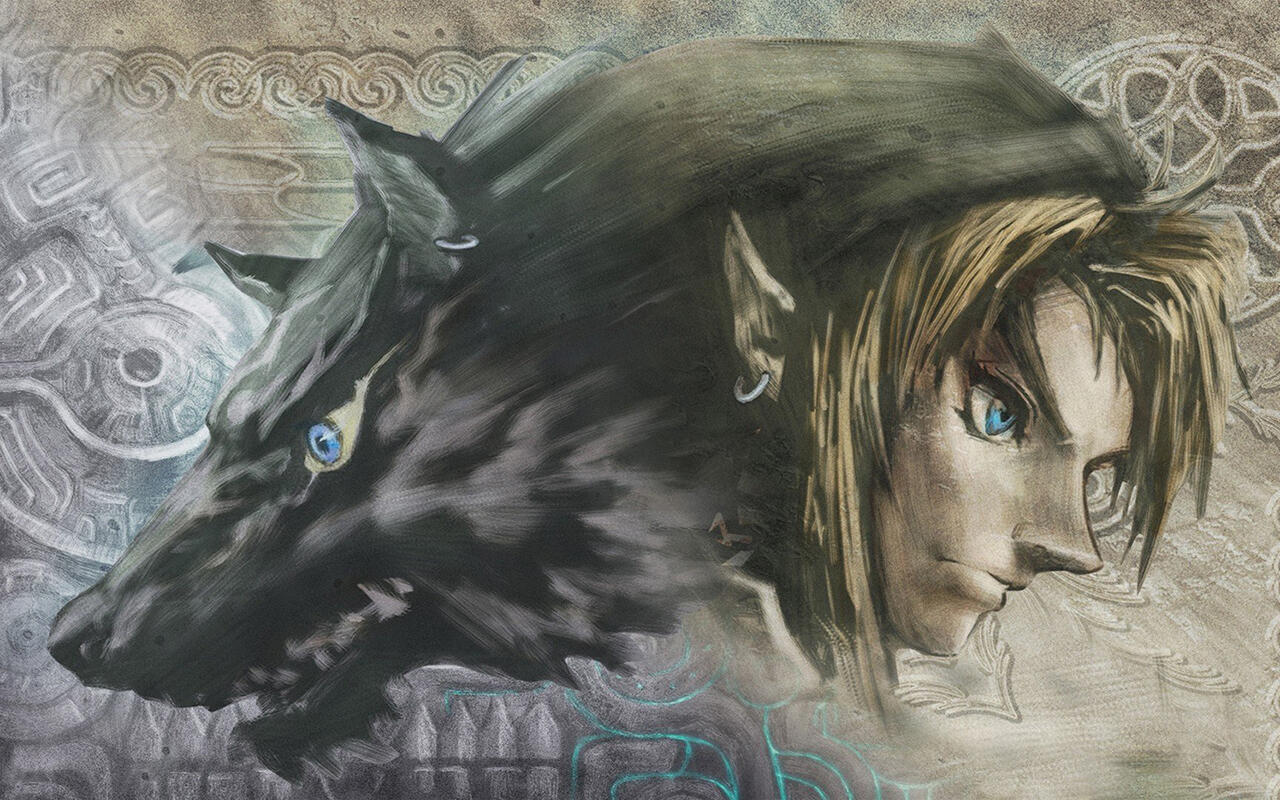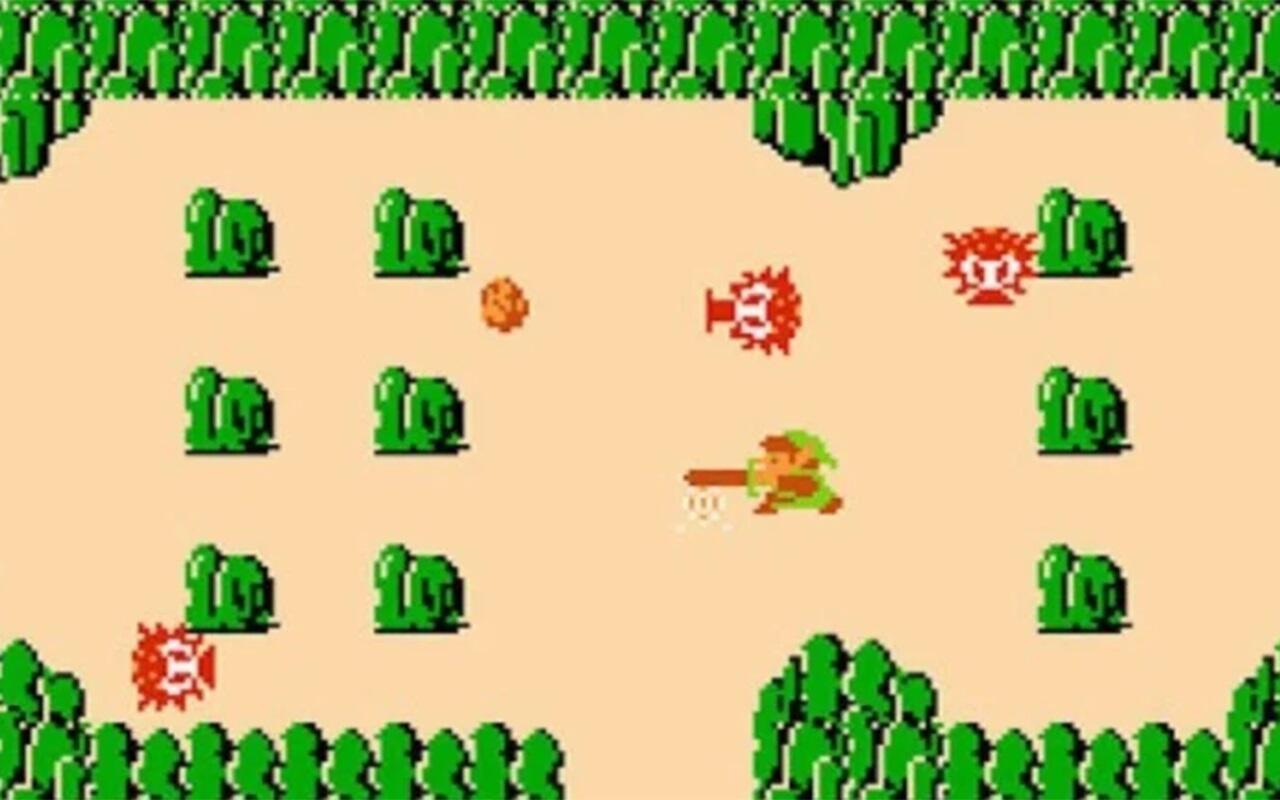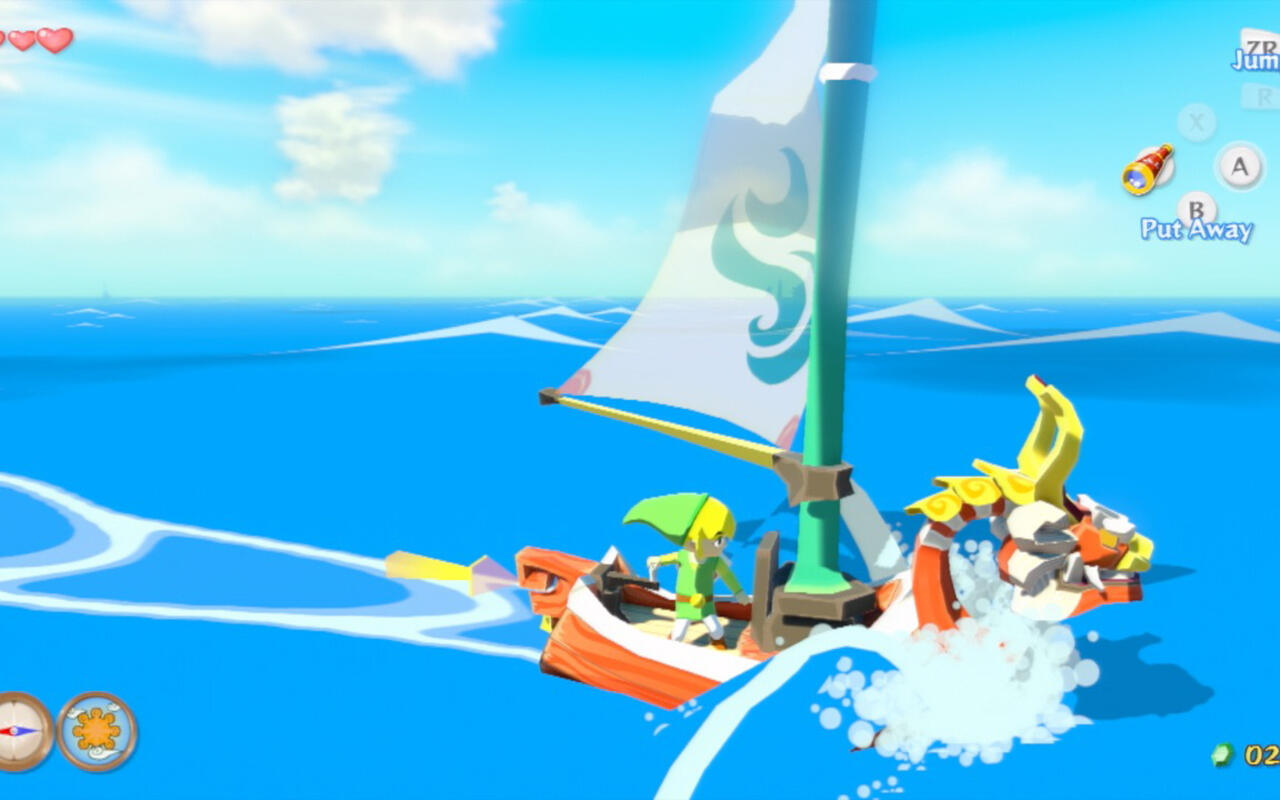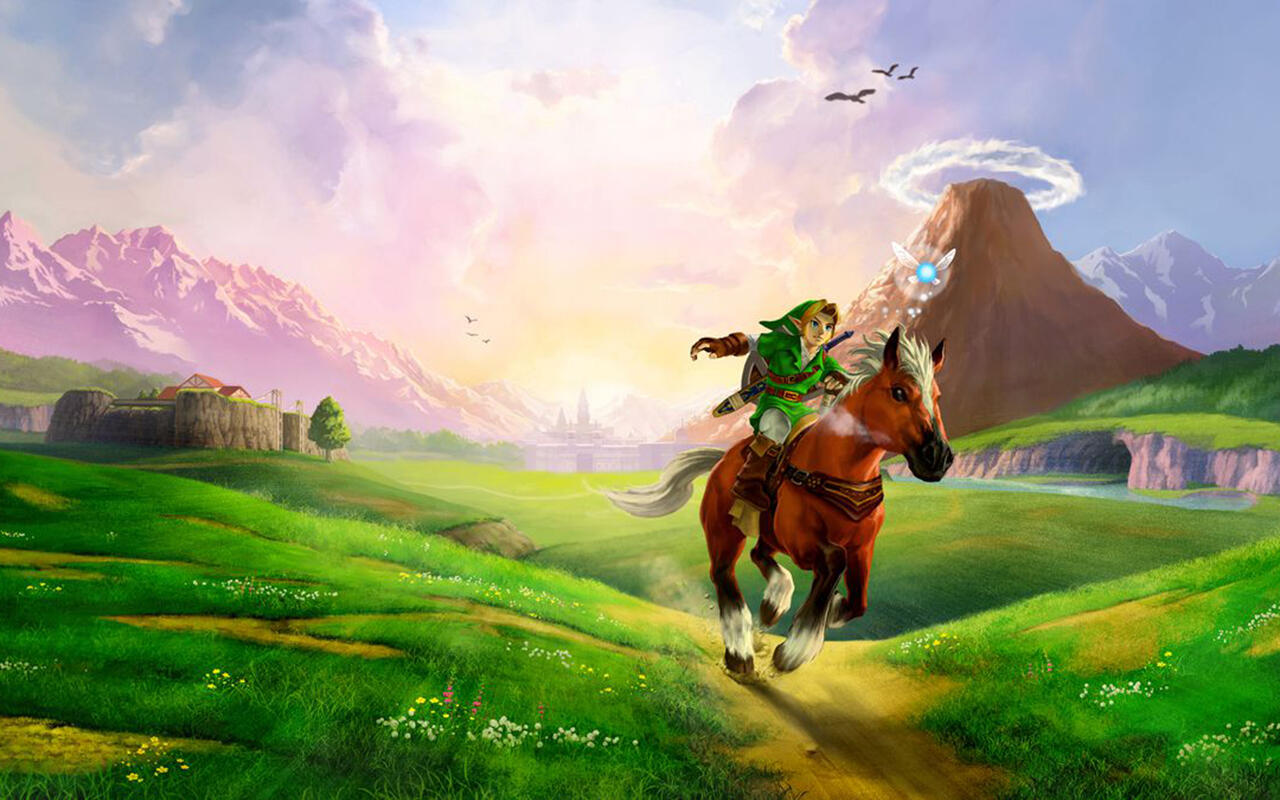Best Zelda Games, Ranked - Where Does Echoes of Wisdom Fall?
GameSpot may receive revenue from affiliate and advertising partnerships for sharing this content and from purchases through links.
The Legend of Zelda is one of the most iconic and influential game franchises of all time. After debuting on the NES more than 35 years ago, The Legend of Zelda has been constantly evolving, reinventing itself in surprising and fascinating ways. It's exceedingly rare for one series to be home to multiple titles that many would place high on the list of the best games of all time, but The Legend of Zelda has managed to do just that. With the advent of The Legend of Zelda: Echoes of Wisdom, the first time Zelda has taken the lead as the main protagonist, we once again have a landmark gaming achievement from Nintendo. So we've taken another look back at the best Zelda games of all time by ranking them from least to most legendary.
The adventures starring a young hero battling against evil have grown up alongside the gaming industry itself, and it's been interesting to watch Hyrule's evolution from an 8-bit world to a lush and massive playground. The Legend of Zelda and A Link to the Past defined generations of top-down adventure games, Ocarina of Time helped usher in the 3D era of video games, and then Breath of the Wild redefined open-world exploration. Tears of the Kingdom has now taken its place in this legacy of innovation.
For the purposes of this list we only included major Zelda releases, so you won't find spin-offs like Hyrule Warriors or curious asides such as Link's Crossbow Training. If you'd like to play these games, some of them are available on the Nintendo Switch, and the classic NES, SNES, and N64 entries are available to play through the Switch Online service.
For more Nintendo franchise lists, check out our picks for the best Mario games and best Metroid games.
17. Zelda 2: The Adventure of Link
Before there even was a Zelda mold, Nintendo thoroughly broke it. Zelda 2 gets some credit for completely rethinking what a Zelda game could be, swapping its top-down perspective for a more action-oriented side-scrolling combat system, and placing much more emphasis on RPG elements like exploring and talking to townsfolk. It bore a passing resemblance to its contemporaries like Castlevania 2: Simon's Quest. But for all of its daring experimentation, it was also often frustrating and obtuse. There's a reason Nintendo chose to make subsequent Zelda games more based on the original than this oddball sequel. Nowadays it's mostly known for its final battle, which had Link fighting against his own shadow.
Zelda 2: The Adventure of Link is available via Nintendo Switch Online.
16. The Legend of Zelda: Spirit Tracks
The Nintendo DS got two of its own Zelda games, but to make use of the dual-screen system you controlled Link entirely using the touch screen. The result was a little awkward and halting, but it worked well enough once you got the hang of it. While Spirit Tracks sported some clever dungeon design, the touchscreen functionality wasn't as novel the second time around, and the limitations of navigating the world via train just didn't feel as adventurous as riding the wind on a boat.
15. The Legend of Zelda: Phantom Hourglass
Phantom Hourglass is the predecessor to Spirit Tracks, and it did just about everything better. It got a lot of mileage out of the Wind Waker art style, and sailing around the world was exhilarating. At the end of the day, though, touchscreen Zelda was an experiment. They pulled it off well enough but even subsequent Zelda games on the 3DS didn't follow in those footsteps, and for good reason.
14. The Legend of Zelda: Skyward Sword
Skyward Sword certainly isn't a bad Zelda game, but it is the point at which the path charted by several previous 3D Zeldas started to show its age. The pattern of exploring a dungeon to find a new powerup felt a little more rote this time around, and worse yet, the pace was criticized as achingly slow. It took hours just to get out of the opening tutorial island, the game constantly dropped reminders about basic information, and your in-game companion was endlessly chatty. Some of this was addressed in the HD remaster for Nintendo Switch, which helps sand off some of the rough edges. The controls were originally designed for the Wii remote, and the remaster makes mostly successful revisions to those. And to its credit, it is canonically the very first Zelda game, making it a must-play for lore lovers.
13. The Legend of Zelda: Oracle of Ages & Oracle of Seasons
The Oracle duology is technically two separate games (and originally three games!), each with their own dungeons and puzzle mechanics. But they're clearly part of a matched set, having followed the Pokemon formula and released simultaneously, with players intended to use cross-game functionality. You can play either game individually and get a full Zelda game, but providing a linked password to either one treats the other like a sequel and provides the "true" ending. But effectively doubling the playtime (and cost) with two similarly-playing games was an awkward fit compared to simply trading pocket monsters, even if the gameplay was a solid throwback to the Game Boy classic Link's Awakening.
See our The Legend of Zelda: Oracle of Ages review and Oracle of Seasons review.
12. The Legend of Zelda: A Link Between Worlds
While many Legend of Zelda games take place in their own unique time and place with only loose connections to others--taking advantage of the squishy nature of "legends"--Nintendo has started to more frequently make direct sequels. And just as Phantom Hourglass and Spirit Tracks were sequels to Wind Waker, the 3DS's A Link Between Worlds was a direct successor to A Link to the Past. The setting was largely similar to LTTP's Hyrule, with the dark "Lorule" as the dark counterpart like LTTP's Dark World. That familiar framework served as the backdrop for Nintendo producer Eiji Aonuma to break out of the Zelda mold. Rather than the staid loop of finding equipment in dungeons and taking them on in order, this one let you play the dungeons in any order after purchasing the necessary equipment from a shady shopkeeper. This was overtly an attempt to shake things up after fans and critics alike criticized Skyward Sword for being formulaic, and it arguably helped pave the way for the much more radical change that was to come in Breath of the Wild.
11. The Legend of Zelda: Echoes of Wisdom
The Legend of Zelda series has spent years placing you in the high-laced boots of Link, the faithful protector of the realm. In Echoes of Wisdom, for the first time you get to play as Zelda herself, with her own unique set of skills. Instead of a sword and shield, Zelda has the power to capture just about anything in the world and then conjure a copy. That means you can dispatch minions to do your bidding, or summon objects to solve environmental puzzles. It's an inventive new take on the familiar Zelda trappings, and it's all delivered in the lovely art style of the Link's Awakening remake.
10. The Legend of Zelda: The Minish Cap
The sole original Game Boy Advance Zelda game wasn't particularly revolutionary, but it was a very polished version of what a Zelda can be. The hook for this entry was a magical cap that could shrink Link down to the size of the Minish--a tiny sprite-like race who live in the cracks and crevices of Hyrule. That mechanic makes the setting the star, as you see environments in regular size often before transferring to Minish-size to see everything around you grow gigantic by comparison. The cap also happens to be your mouthy companion this time, and the wise-cracking cap sported more personality than previous earnest companions like Navi.
The Legend of Zelda: The Minish Cap is available to play via Nintendo Switch Online Expansion Pack.
9. The Legend of Zelda: Link's Awakening
Nintendo's first attempt at a portable Zelda game is still widely regarded as one of its best. The Game Boy release takes Link far from Hyrule to the mysterious Koholint Island. A wise old owl tells him that the monsters have been acting more aggressive since he arrived, because they know he's there to wake the Windfish, who has been imprisoned by a legion of evil Nightmares. The resulting adventure is unlike any other Zelda game, with notable cameos from Mario enemies, wacky characters like a talking crocodile, and a standalone story that tugs on the heartstrings. It later received a Game Boy Color rerelease called Link's Awakening DX, which added a color-based dungeon. More recently, a Switch version revised everything from the ground up with an entirely new visual style and new quality-of-life features.
The Legend of Zelda: Link's Awakening is available via Nintendo Switch Online.
8. The Legend of Zelda: Twilight Princess
After venturing into a very animated art style for Wind Waker, Nintendo went back to a more realistic take on Hyrule in Twilight Princess. This darker entry in the Zelda series features a shadow world teeming with inky blackness. The eponymous Twilight Princess is Midna, the princess of the shadowy realm, and if that weren't dark enough, it features segments in which Link turns into a skulking wolf. While it was a somewhat awkward transition between the GameCube and Wii eras for Nintendo, it still has some of the best 3D dungeon design and a world marked with inventive power-ups and areas to explore. It later received an HD re-release on Wii U.
7. The Legend of Zelda
The original Legend of Zelda lacks the polish of its successors, but we have to give credit to the one that started it all. The foundation laid here, from unique equipment spread out across eight dungeons to loads of obscure and well-hidden secrets to uncover, would go on to define Zelda from that point on. And while it's undeniably minimalist, that only makes it stand out that much more. It was meant to evoke the feeling of going on a grand adventure through the wilderness, and the lack of hand-holding that would come to define later Zelda games makes the world feel that much more expansive and mysterious.
The Legend of Zelda is available via Nintendo Switch Online.
6. The Legend of Zelda: The Wind Waker
A divisive GameCube game at launch has grown into one of the most revered in hindsight. Wind Waker attempted a new cel-shaded art and more cartoonish characters and environments. More radical than the visual style may have been the world, which was far from the Hyrule we all remember. Instead it took place in a flooded kingdom with sparse islands separating them, and you spent much of your time traversing between them on a small talking boat. The colorful presentation belied ingenious dungeon design and some neat power-ups, including a glider-like leaf that was the precursor to one of Breath of the Wild's most significant traversal tools. It received an HD remaster on Wii U in 2013.
5. The Legend of Zelda: Majora's Mask
Zelda spin-offs have shown mixed success, but this spin-off from the Ocarina of Time is still revered as one of the best in the series. Young Link goes on a journey outside of Hyrule, discovering the strange Clock Town which is doomed to suffer an apocalyptic event in just three days. To stop the impending doom from a creepy, grinning moon, Link has to employ the use of masks that grant him new abilities or even change his race into fantastical creatures like the Zora or Deku. The masks provided an interesting change from the standard Zelda equipment. In contrast to Ocarina's broad, sprawling Hyrule, Majora's Mask was a very focused experience--taking place in a time loop within a town where getting to know the habits and routines of the townsfolk was vital to your success in saving them. Like Ocarina of Time, it received a 3DS port that included some quality-of-life changes.
The Legend of Zelda: Majora's Mask is available via Nintendo Switch Online Expansion Pack.
4. The Legend of Zelda: Ocarina of Time
The first 3D Zelda set the template for the direction of the series to follow for years. But it wasn't just influential within the context of the Zelda series itself. As a trailblazer in video game design, Nintendo helped to invent and innovate many of the ways that 3D video games would work for years to come. Even today, every time you lock onto an enemy in combat you're tipping a hat to Ocarina of Time.
For Zelda fans, Ocarina also established some of the most vital and central parts of the legendary lore, including the origins of Ganon, the history of the three Golden Goddesses, the first appearance of races like the Goron and Deku, and a deeply expanded cast of surrounding characters and cultures. It also established an important part of the Zelda mythos--that the primary characters, Link, Zelda, and Ganon represent aspects of the Triforce itself, which is why their fates are tied together through the generations.
As one of the most revered Zelda games, it's also gotten multiple ports and remasters. It was released as a special GameCube disc along with the Master Quest, an ultra-hard version with reworked dungeons. It also received a 3DS port that included quality-of-life changes, including some revisions to the infamous Water Dungeon.
The Legend of Zelda: Ocarina of Time is available via Nintendo Switch Online Expansion Pack.
3. The Legend of Zelda: Breath of the Wild
The Legend of Zelda: Breath of the Wild was such a landmark achievement in games that we'll surely look back at it as an inflection point for the Zelda series, and for games as a whole. While Nintendo is often a playful and experimental company, it can sometimes take a lot for the company to make major, seismic changes to its core franchises. After the criticism lobbed at Skyward Sword, the company listened. Producer Eiji Aonuma started talking openly about his desire to break with the Zelda formula and try new things, first letting you purchase equipment and mix up the dungeon order in A Link Between Worlds.
That was just a taste of things to come, however, because Breath of the Wild was the real radical shift. Nintendo reassessed just about everything, from the structure of dungeons to equipment to how you interact with the world. The result was an incredible open-world experience where players could push themselves to go just about anywhere--including straight to the final boss, if they'd like. It was unlike any Zelda before, and inspired countless imitators already, and marked a new era of The Legend of Zelda that continued in Tears of the Kingdom.
2. The Legend of Zelda: A Link to the Past
A Link to the Past was only the third Zelda game in existence, but third time's the charm. This was widely seen as an instant classic and still stands as the pinnacle of the 2D Zelda games. Of all the classic top-down Zelda games, A Link to the Past has withstood the test of time the best, and it's the blueprint against which we judge other top-down Zelda games along with the series' many retro imitators.
The dungeons and bosses were fine-tuned to near perfection, the overworld was bursting with secrets to uncover and explore, and the new Dark World element let you flip between two very different versions of the same space. In both the light world and dark world, Link to the Past put the focus on the inhabitants of the world, like the Flute Boy, who had their own stories told with minimalistic grace. It's both an impressive achievement for its time and a game that absolutely holds up in modern times, making Link to the Past is one of the very best.
The Legend of Zelda: A Link to the Past is available via Nintendo Switch Online.
1. The Legend of Zelda: Tears of the Kingdom
Breath of the Wild was a bold reinvention of the Zelda formula. Somehow, Tears of the Kingdom takes everything that made that game remarkable, surprising, and delightful, and improves upon the experience in almost every way. The world is a massive playground for exploration, made all the larger by the triple-layered element of the Sky Islands and the dark Depths. Each of these biomes beautifully feeds into each other by providing materials and treasure maps to each other. You could lose yourself exploring any one of these areas, but the harmonization of all three in concert with each other sings. The addition of proper dungeons as well as some of the most audacious boss fights in the series' history makes the world feel perilous and electric with activity.
And building upon the foundation of Breath of the Wild, Tears of the Kingdom introduces a new and revolutionary suite of building tools, opening up seemingly infinite possibilities for puzzle-solving and exploration. In this Zelda game, everyone is an engineer, tinkering with their creations to reach new heights, traverse boiling lava, or cross a lake. This element has also made Tears of the Kingdom an unusually social game, as players around the world proudly show off their greatest creations and cleverest tricks.
More than a playground, though, Tears of the Kingdom also tells a resonant, emotionally impactful story that pays homage to the legacy of the series in surprising ways. It does this with bolder, more cinematic storytelling unlike anything we've seen before in the series. It is at different points creepy, beautiful, mournful, cathartic, and exciting. It sets a new standard for the series, and one that will be difficult to surpass.
The Legend of Zelda: Tears of the Kingdom is the complete package. A beautifully told story, an expertly crafted campaign, and a workshop for players to express themselves creatively. It is an absolute triumph.


